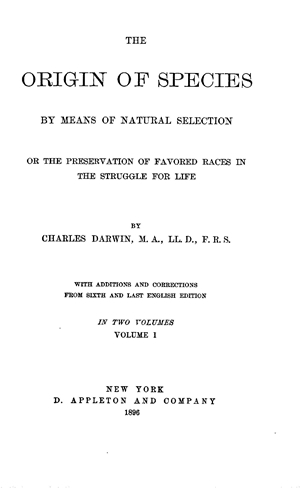
Part of: The Origin of Species 2 vols. The Origin of Species vol. 1
- Charles Darwin (author)
Vol. 1 of a two volume set. This is Darwin’s most famous book. Here he puts forward the idea that all species evolve over time from common ancestors by a process which he called “natural selection.” It was based upon the evidence he had accumulated when he traveled on the H.M.S. Beagle for its 2nd voyage to survey South America between 1831-36.